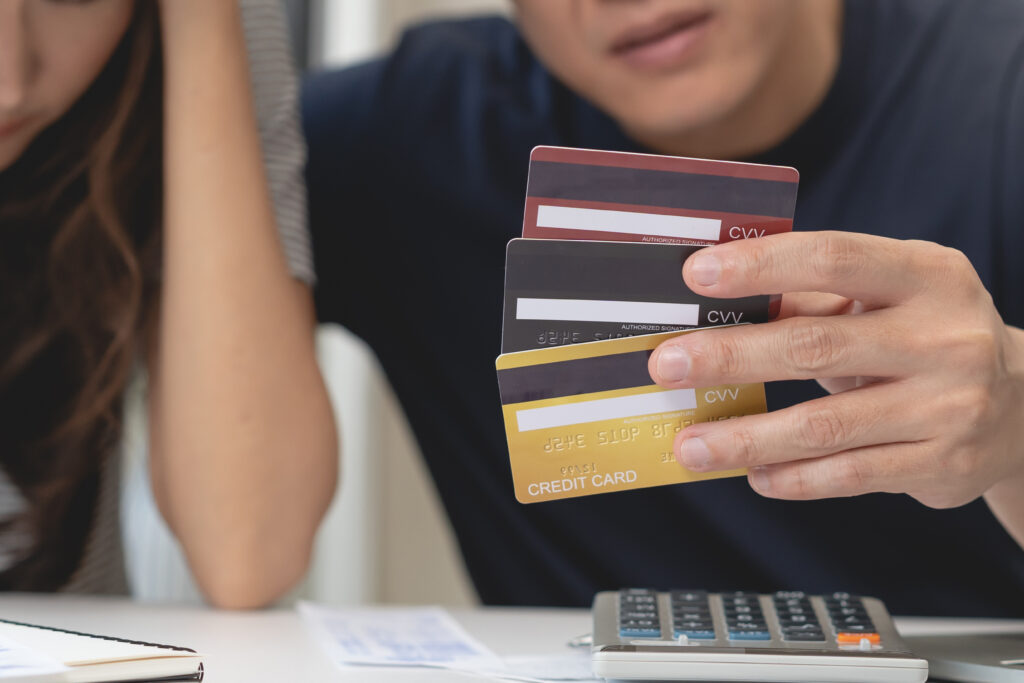If you’re considering debt settlement, you’ve probably asked yourself a hard question: “Do I really have to stop paying my creditors?”
For many people, the idea of missing payments feels wrong—even if they’re already falling behind. Maybe you’ve worked hard to stay on top of your bills, or you feel a personal responsibility to pay back everything you owe. That’s completely understandable.
But this concern comes up for a reason—and it’s worth talking about. Debt settlement is different from other debt solutions. It involves negotiating with creditors to accept less than the full amount you owe, and that often means pausing payments during the process. That can feel risky, but it’s also a deliberate part of how settlement works.
Here’s what really happens when you stop paying your creditors, and why some people choose this path when they can’t keep up with their debt.
Why Debt Settlement Often Involves Pausing Payments
Debt settlement is built on negotiation. The goal is to reach an agreement with your creditors where they accept less than the full amount you owe. But that kind of negotiation might only happen when creditors believe that full repayment isn’t possible.
If you’re still making regular payments, creditors may assume you’re managing fine—or that you’ll eventually catch up. That can make them less willing to settle.
Pausing payments sends a different message. It shows that your financial situation has changed and that you may not be able to repay in full. This creates an opportunity for negotiation, where a creditor might agree to accept a lower amount rather than risk getting nothing if the debt goes unpaid.
What Happens If You Keep Paying While Pursuing Settlement
It might seem like a good idea to keep paying your creditors while also working with a debt settlement company. But in many cases, doing both can backfire.
Continuing to make payments—especially minimums—can send the wrong signal to creditors. If they believe you’re still able to pay, they’re less likely to agree to settle for a lower amount. This can make it harder for your negotiator to reach a resolution on your behalf.
There’s also a financial cost. Every dollar you send to a creditor is a dollar you can’t set aside to fund your settlement offers. This can delay your progress, stretch your budget even thinner, and make it harder to build momentum toward getting out of debt.
What to Expect When You Stop Paying Your Creditors
When you stop making payments to your creditors, a few things are likely to happen—and it’s important to be prepared.
You may start getting collection calls or letters. Your account could be charged late fees or penalties. And yes, your credit score may go down. These are real effects, but they’re also expected parts of the debt settlement process.
This doesn’t mean you’re ignoring your debt. You’re choosing a strategy that focuses on reaching a final resolution rather than just staying current on minimums. Instead of paying creditors directly, most settlement clients save into a dedicated account. That money is later used to make lump-sum offers to settle debts for less than the full balance.
While the short-term effects can be uncomfortable, they’re part of a larger plan to resolve debt and move forward.
Is Debt Settlement the Right Option for You?
Debt settlement is designed for people who are struggling with unsecured debt—like credit cards, medical bills, or personal loans—and can’t afford to pay the full amount they owe.
You may be a good fit if:
- You have $7,500 or more in unsecured debt
- You’re behind on payments or can’t keep up with minimums
- You’re willing and able to save into a dedicated account each month to fund future settlement offers
It’s important to understand that debt settlement usually leads to credit score impacts and may involve late fees or tax implications on forgiven debt. But for many people, it’s a practical alternative to bankruptcy—or to staying stuck in a cycle of minimum payments that never bring the balance down.
Not sure if you qualify? A certified debt consultant can help you understand your options and what might work best based on your unique situation.
Final Thoughts
Choosing to stop paying your creditors during the process may feel difficult—but for many, it’s a step toward lasting relief. If you’re struggling to stay afloat and looking for a way out, take time to understand your options. The right plan can help you break the cycle and start building a stronger financial future.
The content provided is intended for informational purposes only. Estimates or statements contained within may be based on prior results or from third parties. The views expressed in these materials are those of the author and may not reflect the view of SmartSpending. We make no guarantees that the information contained on this site will be accurate or applicable and results may vary depending on individual situations. Contact a financial and/or tax professional regarding your specific financial and tax situation. Please visit our terms of service for full terms governing the use this site.

